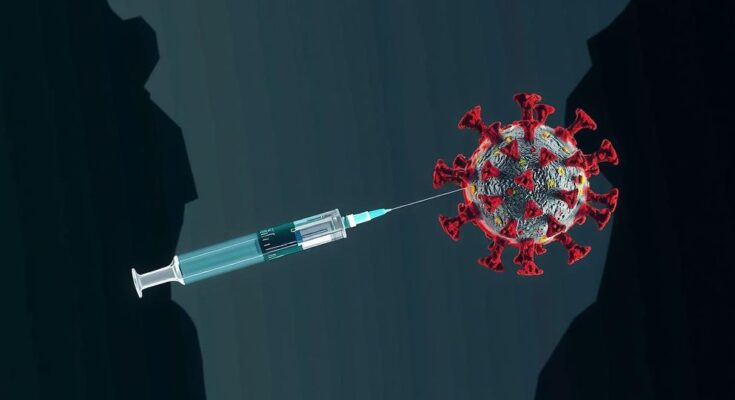More than 50,000 people have been vaccinated against mpox in the Democratic Republic of Congo and Rwanda, according to the WHO. The disease has resulted in over 1,100 deaths in Africa, causing health officials to warn of a potential pandemic more severe than COVID-19. Vaccination efforts, supported by international aid, continue as the outbreak remains uncontrolled.
On Friday, the Director-General of the World Health Organization (WHO), Dr. Tedros Adhanom Ghebreyesus, announced that over 50,000 individuals in the Democratic Republic of Congo and Rwanda have received vaccinations against mpox, a disease previously referred to as monkeypox. The outbreak of mpox has proven deadly, with more than 1,100 reported deaths across Africa, prompting concerns from the African Union’s health oversight body of a potential pandemic that could surpass the severity of COVID-19. Despite the vaccination efforts, the outbreak remains uncontrolled, as emphasized by health commission members who have called for additional resources to mitigate this ongoing health crisis. According to the Africa Centres for Disease Control and Prevention (Africa CDC), around 48,000 cases of mpox have been documented since the beginning of the year, with the majority of fatalities occurring in the DRC, identified as the epicenter of the outbreak. In support of the vaccination initiative, WHO’s Dr. Ghebreyesus pointed out that the immunization efforts have been significantly aided by donations from the United States and European Commission, underscoring international collaborative efforts in public health. He further noted that nearly 900,000 vaccine doses were allocated this week to nine countries as part of a distribution mechanism managed by the WHO and its partners. This allocation is the first step in a comprehensive plan that anticipates an availability of almost six million vaccine doses by the conclusion of 2024 through the Access and Allocation Mechanism (AAM). Mpox, a viral disease closely related to smallpox, is primarily transmitted to humans through infected animals. It can also spread from person to person through intimate physical contact, inducing a range of symptoms including fever, body pain, swollen lymph nodes, and a distinctive rash that progresses to blister-like lesions.
Mpox, previously known as monkeypox, is a viral infection that has been a growing public health concern, particularly in Africa. The resurgence of cases has raised alarms regarding the potential for a larger outbreak. This disease is zoonotic, meaning it is primarily transmitted from animals to humans, but it can also be spread between humans. Given the serious implications of mpox, including high mortality rates and extensive health crises in regions like the Democratic Republic of Congo, the WHO and various health authorities have initiated vaccination campaigns to curb the spread and mitigate the impact of the disease.
The WHO’s recent announcement of over 50,000 vaccinations against mpox in the DRC and Rwanda reflects a concerted effort to address the escalating outbreak of this viral disease. With substantial fatalities and a pressing need for resources, the global health community is mobilizing support to prevent a potentially more severe pandemic. The progress noted, while significant, underscores the need for continued vigilance and an expanded response to ensure public health safety.
Original Source: www.france24.com




